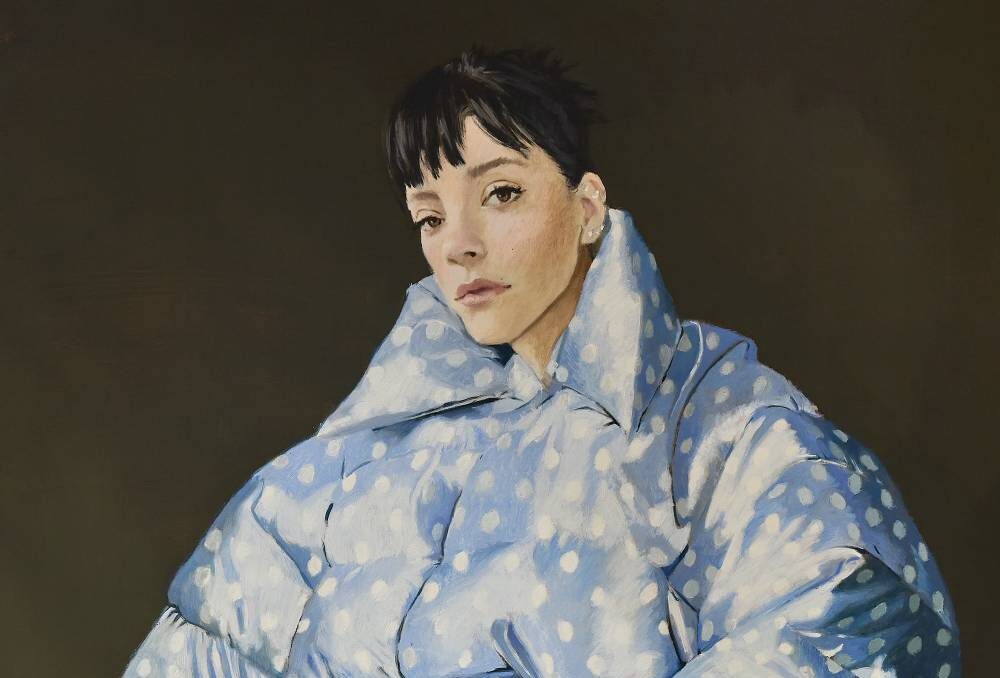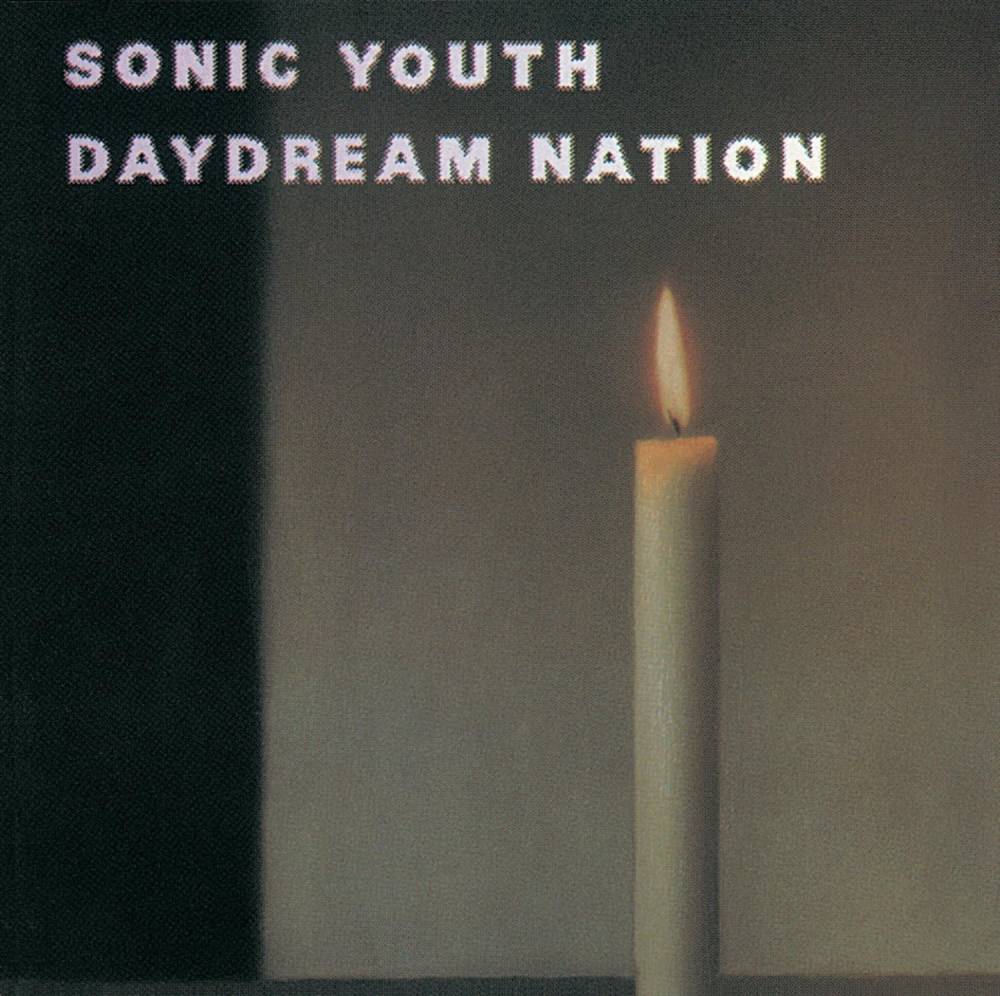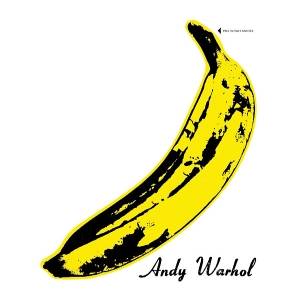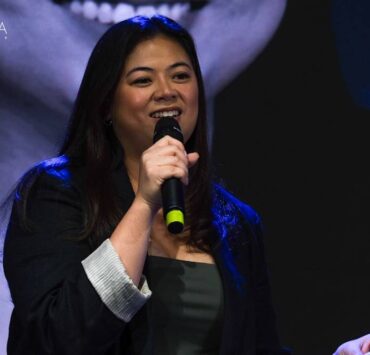Why Lily Allen’s latest album cover is turning heads in the art world

The intersection of music and visual art is always exciting, and on occasion, it changes the way we hear a song. Recall Andy Warhol’s banana on the debut album of The Velvet Underground & Nico. Or how about Gerhard Richter’s candle on Sonic Youth’s avant-garde “Daydream Nation?” More recently, we’ve had Banksy on Blur’s “Think Tank,” George Condo on Kanye West’s “My Beautiful Dark Twisted Fantasy,” and Lorde’s moody portrait for “Melodrama” by Brooklyn artist Sam McKinnis.
Walking through H&M over the weekend, Lily Allen’s familiar voice floated through the speakers with her undeniable mockney (mock-cockney, an affected imitation of a cockney London accent) elocution. But the lyrics were unfamiliar. And though her songs have always carried a jaded tone, these felt far wearier, as she unmistakably sang about family, children, infidelity, and the collapse of a marriage.
This led to the discovery of her latest album, “West End Girl,” released just last week on Oct. 26. Written and recorded in just 16 days, it’s Allen’s first album in seven years. It arrived without warning. Critics are already calling it a return to her 2010s high point, but with more mature themes, as Allen reflects on her divorce with “Stranger Things” star David Harbour, who played Jim Hopper, Seven’s dad.
Allen uses the album as a confessional terrain, exploring betrayal, open-marriage arrangements, and the slow collapse of trust within the partnership. The album is autobiographical and meant to be listened to chronologically.
As she sings in “Madeline,” “We had an arrangement / Be discreet and don’t be blatant,” her shock of promised fidelity dissolves. Her voice, once cheeky and adoring, now sounds fierce and wounded, as in “Ruminating,” “I can’t shake the image of her naked / On top of you and I’m dissociated.” I also found myself bobbing my head to the repeated yet melodious line of “I hate it, I hate it” in “Dallas major,” which brought to mind her 2010s hit, “F You.” Her admission that she checked into treatment and agonized over her mental health during the separation adds real weight to the music as well.
Putting a face to the album name “West End Girl,” I also looked into the intriguing cover art, a striking portrait of Allen by Spanish artist Nieves González.

The album and its art
Why Lily Allen’s latest album cover is turning heads in the art world is also easy to see. González received a brief from Allen to create a portrait in her signature style, taking from imagery of Catholic saints, while layering a classical atmosphere through the brushstrokes. But the artist also employs elements that ground viewers in our current world, such as Allen’s puffy, ’90s Brit-esque jacket with white polkadots. Swaddled in her sweater, Allen looks out pensively, a little sadly, but also with a sense of distance and detachment.
And she captures Allen and the album well.
Born in 1996 in Huelva, a port city in southwest Spain, González finished both her BA and MA in fine arts at the University of Seville, steadily building acclaim. There’s also a clear sense of the Chiaroscuro technique used in a contemporary manner through an adept use of light and shadows. With González’s Spanish origins, there are also suggestions of influences from Spanish artists Goya and Velázquez. She said in a conversation with Esquire, “Andalusian Baroque is a key reference in my work because of its emotional intensity and its dramatic treatment of light.”
González also wrote on Instagram, “This project was born with love, between Andalucía and London, and it’s been such a gift to accompany an artist as inspiring as Lily.”

Love, Lily
González’s emotion-driven sentiments feel fitting when you listen to “West End Girl” itself.
Musically, there’s a touch of Latin percussion and lush strings, but lyrically she dives into heavy, unflinching territory: Open relationships gone wrong, cheating, lying, and heartbreak, all delivered with the potty-mouth wit fans know and love. She sings about buying a brownstone in New York, then being left alone in London, and navigating life as a West End girl. Here, Allen is unabashedly honest, a little sad, and wholly human.
Years ago, Allen opened my eyes and amazed my innocent teenage brain with how smart pop music could be, and while this album is no exception, her past work is just as sharp.
You might remember the sarcasm of “The Fear” with lines like “And I am a weapon of massive consumption—it’s not my fault, it’s how I’m programmed to function.” Or how about her typically candid, biting anthems like “Smile,” as she happily sang, “At first, when I see you cry, yeah, it makes me smile.” And then of course, there’s “F You”—an anthem I’m sure many hum in their head when they’re feeling a little bit cross with someone.
Since her peak in the 2010s, she has also continued to release songs that tackle topics ranging from feminism to internet trolls, as well as Trump.
With “West End Girl,” Allen seems to be showing off her strength while wearing her heart on her sleeve, making clear that her pain has also led to her transformation. She seems to touch on her origins as a vulnerable yet sharp-witted Londoner, showing growth without losing her signature bite.
There’s a sense of history with her music, her lyrics, and now her album art, all coming full circle, with Allen’s unmistakable flair on full display.

















